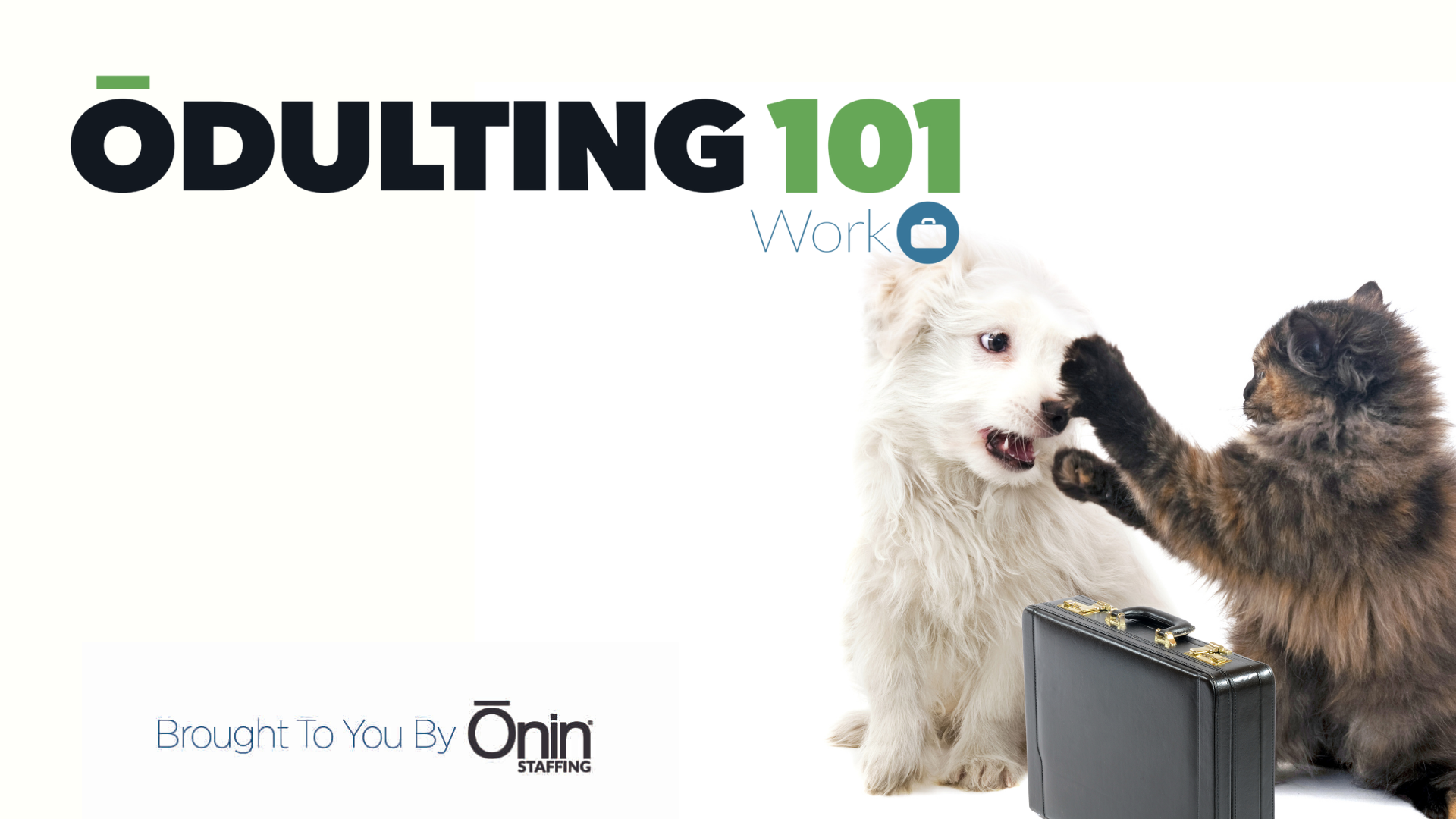
Your job’s okay, except when you have to deal with that one particular you-know-what, right? Maybe it’s a co-worker, maybe it’s a boss… maybe it’s even a recurring customer that just rubs you the wrong way. Well, here are some tips with dealing with these people or situations in a way that doesn’t result in a write up (or worse).
We Like To Think Of The Workplace As A Professional, Clinical Environment.
In the idealized business world, people are supposed to leave their personal problems at home. They come to work ready to focus on the task at hand and get things done. In this imaginary world, when problems arise, they can be easily resolved and everyone can get back to work and continue making money for the company.
Companies Are People, And People Are Messy Things.
People are emotional creatures. They are messy, complicated and unpredictable. Leaving our emotional baggage at home is difficult in the best of circumstances. When you add in the amount of stress that is inherent to most jobs these days, it becomes impossible. Your co-workers are everyday people. They have their own problems and concerns.
Stress Creates Tension; Tension Asks For Conflict.
In any workplace, there are many sources of stress. Budgets, deadlines, and scheduling and production issues are just a few of the things that can put pressure on employees. When people are under pressure, they become tense. Tension seeks release, and that often comes in the form of conflict. Conflict can arise in many different ways. It can be verbal or physical, individual or collective. It can be open or hidden. The important thing to remember is that it is always destructive.
People Can Use The Same Words And Be Talking About Different Things
What one person may see as a minor inconvenience, another person may see as a major problem. Not only that, even common words can mean different things to different people. To one person “money” might mean access to resources. To another it might mean protection against risk. Even though that “argument” is about money… the root of the conflict lies in the fact that they are actually arguing about two different things. It is important to remember that we are all in a different place emotionally, financially and personality-wise. This can create challenges in communication.
Try Not To Assume
When we make assumptions about what the other person is thinking or feeling, we are really just guessing. When your boss doesn’t cheerfully greet you “good morning” the way they normally do, some might assume that the boss is mad at them. Others might assume that they are having a rough day or are preoccupied with a personal issue. Depending on the narrative you spin in your mind, this could inspire feelings of doubt or fear or even sympathy.
In reality, the boss might have been listening to the tail end of a podcast they started on the drive in, and simply had their attention focused elsewhere. There was no conflict involved, he or she is fine, and no slight was intended. But the stress caused for us by such an assumption, though self-inflicted, is very real.
Make Sure You’re Not Looking For A Fight
When we’re in a negative frame of mind, it’s easy to misinterpret a harmless event as reason to take offense. For example, maybe you’re really stressed out on a particular day and just generally feeling on edge. When your cubicle neighbor gets up for some coffee, they accidentally bump into your desk and it causes something on your desk to topple over. In a less stressful frame of mind, this may have been nothing more than the annoyance of having to pick things up again.
But if you’re stressed, the collision with your desk may be interpreted as a deliberate attempt to disrespect or antagonize you. The spilled pencils may now be seen as an intentional act of spite. Suddenly, though the inciting incident was completely innocent and accidental (and your co-worker is completely unaware), there is conflict.
Seek A Resolution, Not A Win
When we approach a difficult situation with the goal of creating a resolution where everyone comes out better, we are taking a much more positive and constructive approach. This type of solution-based thinking requires that we put our egos aside and focus on what is best for the group.
When we resort to an adversarial encounter, where someone wins and someone loses, it is usually because we feel like we are not being heard or our concerns are not being taken seriously. We want to be vindicated, to have our opinion validated and to see the other person punished. This type of thinking is counterproductive and leads to tension and resentment.
A resolution-based approach allows all voices to be heard and for a consensus to be created that addresses everyone’s concerns.
Maybe This Is A Sign To Seek Something Better
If you find yourself in a situation where you’re repeatedly butting heads with your coworkers, it might be time to consider seeking out a new job. Repeated conflict is usually a sign that the people you’re working with are not a good fit for you. A bad work environment can be toxic and damaging to your mental health.
When you’re looking for a new job, it’s important to be honest with yourself about the type of workplace culture that will work best for your personality and self-esteem. Some people find comfort in the predictability and structure of a highly centralized organization with a clearly defined chain of command. Others might find that suffocating and prefer a more open, team-based environment. Neither one is right or wrong.









